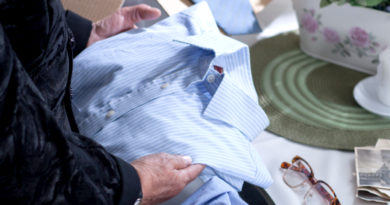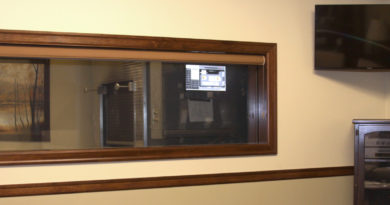Consumer Alert: Funeral-related Scams to Avoid

through various scams. Photo © iStock.com/Ildo Frazao
The death of a loved one ranks high on the list of life’s most difficult experiences. Unfortunately, just as dying is inevitable, so too is the presence of devious lowlifes who seek to take advantage of the newly bereaved. This article details four funeral-related scams and offers consumer tips to help you avoid falling victim to these schemes.
1. The Fake Company
We’re often told not to believe everything we read on the Internet, but that warning also extends to traditional communication media, such as magazines, newspapers, etc. For example, Clarence Corter, a 30-year veteran of the U.S. Air Force, purchased a casket from “Celestial Burials” after seeing the company’s advertisement in his Veterans of Foreign Wars (VFW) magazine.
Unfortunately, his loved ones had to buy a second casket from a funeral home for $3,500 after Corter died a few years later. Despite the seeming legitimacy created by its appearance in VFW magazines and elsewhere, “Celestial Burials” did not ship the casket Corter purchased to the family’s chosen funeral home when needed.
In fact, the company existed merely to defraud unsuspecting consumers — many of them military veterans. Ultimately, Clarence Corter proved to be just one of nearly 5,000 victims robbed of $2.4 million because of this fake-company scheme.
Consumer Tip: Regardless of where you see it or how it is communicated, do not assume every advertisement you see for funeral, burial or cremation goods/services is from a legitimate business. While communication companies (newspaper and magazine publishers, TV and radio stations, etc.) usually conduct credit checks and ask for business references before running ads placed by new clients, this is not always the case.
Moreover, modern technology makes it ridiculously easy for unscrupulous operators to create a facade of legitimacy, so you should perform the necessary due-diligence if you’re not already familiar with a company. Don’t be taken in just because a business offers a website, a toll-free phone number, a business address, a smartphone app, numerous glowing reviews from happy customers on its website, etc. Instead, contact the Better Business Bureau and other reputable agencies first; locate information online from reputable sources; and even ask your family members or friends for their assessment before you buy anything.
2. The Fake Official Letter
Many funeral-related scams target senior citizens for various reasons. Foremost, those born before 1950 generally prove more receptive to making funeral and burial arrangements, given their current stage of life. In addition, many seniors live alone, which reduces the number of people who might ask too many questions or raise objections. Finally, the elderly often prove more trusting, especially when faced with “authorized” or “official” communications. (For a list of additional reasons why senior citizens are targeted for fraud, please read this FBI list of “Common Fraud Schemes.”)
In Virginia, for example, seniors received official-looking mailings from a company calling itself the “National Processing Center,” which listed an address on Pennsylvania Avenue in Washington, D.C. (Another well-known building — the White House — is also located on that street.) Stating that a new “government program” would pay 100% of the funeral costs for qualified applicants, many senior citizens mistakenly thought the U.S. Census Bureau sent the letter and, therefore, willingly provided confidential personal information that left them vulnerable to identity theft.
Consumer Tip: Whether received via physical mail, e-mail, telephone, door-to-door, etc., never share your personal information with someone who initiated the request unless you feel satisfied that:
• There is a legitimate need for the info in order to continue/conclude a transaction you fully understand and desire. Remember: just because you’re asked, the decision to provide your personal information is always up to you.
• The requesting individual and/or company is legitimate. Make sure you conduct the necessary due-diligence (see “The Fake Company” above.) In the case of the “National Processing Center,” for instance, the official-looking Pennsylvania Avenue address clearly listed a post office (P.O.) box rather than a physical “brick-and-mortar” address. This should have raised a red flag about whether this “government agency” was bona fide.
If you feel the slightest doubt, state that you want to discuss the particulars with a family member or friend and ask for a telephone number or email address so you can get back in touch. If that proves difficult or if the individual insists on concluding things right away, then you should probably just walk away.
3. The Fake-Debt Collector
Many movies and books have used the unexpected appearance of a “stranger” to further their stories, but criminals have also borrowed this device to prey on the bereaved. Because the Internet now provides a wealth of information about people — much of it volunteered by individuals via social media sites, such as Facebook and LinkedIn — learning significant details about someone’s life is frighteningly easy.
Thus, it is common today for con artists to scan obituaries and social-media sites in order to locate a suitable target. After gleaning information about the deceased, the scammer might simply phone one of the surviving loved ones listed in the obit and introduce him or herself as an “old pal from college” or someone who “went through basic [military] training” with the person who died.
After spinning a tale that offers just enough personal information to sound convincing, he or she then mentions an outstanding debt and asks how to collect it. (Some criminals are even brazen enough to attend the funeral service in order to learn more about the deceased and/or to identify the best person to contact about the fake debt.)
Consumer Tip: If someone contacts you or a family member during or after a funeral and claims the deceased owed him or her money, insist on receiving written/printed documentation of the debt so you can verify its legitimacy. Do not provide (or even confirm/deny) any personal or financial information until the claim has been substantiated to your satisfaction.
Asking for written proof might prove enough to deter a would-be debt collector, but if he or she persists or becomes threatening, then do not hesitate to contact local law-enforcement.
4. The Unseen Visitor
As mentioned earlier, criminals will scan obituaries in order to locate their next victim, which might include the dead or the living. Within a few days of her death, for instance, two people broke into the home of Shelle Kilgrow in Cottonwood Heights, Utah. Inside, the thieves not only stole everything of value (a haul estimated at $15,000) but they also vandalized the house, destroying whatever remained.
The police suspect that these burglars scrutinized obituaries to locate Kilgrow’s empty home, and that this was not the first time they performed this despicable act. Unfortunately, thieves will also scan obits to identify surviving loved ones who will be away from their homes during a wake/visitation, funeral service and/or burial for a few hours or a few days.
Consumer Tip: If a loved one dies and lived alone, ask a neighbor or friend to watch the deceased’s house and/or alert the local authorities that the home will be vacant, in case the police can drive by once in a while
In addition, if your name is listed in the obituary as a survivor, then you should ask a neighbor or friend to keep an eye out for suspicious activity at your home while you are away making the funeral and burial arrangements or attending the actual services — even if you will only be away for a few hours.
Sources:
“Thousands fall victim to casket scam,” March 21, 2013. Retrieved January 25, 2018. https://www.news4jax.com/consumer/thousands-fall-victim-to-casket-scam
“BBB warns consumers about mailer offering life insurance info” by Katherine Peralta, March 10, 2015. Retrieved January 25, 2018. http://www.charlotteobserver.com/news/business/article13198691.html
“Thieves target deceased woman’s home, steal $15,000 worth of items” by Jennifer Stagg, March 22, 2010. Retrieved January 25, 2018. https://www.ksl.com/?nid=148&sid=10108346







